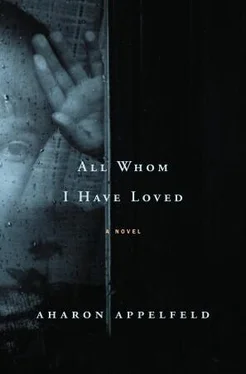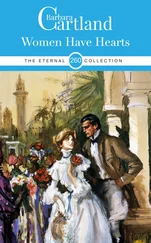Cold, gray days had come. Father stopped painting and slept for most of the day. I would go to his room almost hourly to look in on him. In the afternoon he would wake up and ask, “Where's Victor?” Victor would come in the afternoons and take us out to the country. Perhaps he thought that his being there would have a calming effect on Father, but of course in the country there's no good cognac, so we would come straight back to the city to stock up on a few bottles.
“I once loved the country,” said Father distractedly.
“And now?”
“I find the quiet hard to take.”
In moments of clarity, Father would embrace Victor and say, “What do you need this trouble for?”
There were some art critics, mostly Jews, who no longer wrote for the newspapers. They would come to see Father. But Father was not that welcoming, because he lumped all art critics together. Eventually people stopped visiting; only Victor came. Father would read the newspapers and say, “Here they are.”
“They make no impression on me at all.” Victor dismissed them lightly.
“Now they're telling us what to think.”
“Telling who?”
Victor talked to Father softly, persuading and promising, stuffing banknotes into his pockets. One evening Victor came by with five of his friends and announced that the Pissarro Foundation's Committee for Visual Art had decided to award Father its annual prize. Victor hung a gold medallion around Father's neck as the five friends clapped. Father must have guessed that this was Victor's invention, but he was still happy. He drank, told jokes, and did not take the medallion off his neck the entire evening.
The next day Father did not get up to paint as I had expected, but slept until the afternoon. When he got up he asked, “Where's Victor?”
And Victor did come. Father asked if there'd been any interest in the exhibit. Victor told him that seven paintings had been sold so far and that there was considerable interest. Father looked dubious, but Victor put his hand on his heart. “I swear to God.”
Then they sat in the living room, and Father suddenly asked about the general. Victor told him the story right from the beginning.
The general's wife, Victor's aunt, had been very unhappy when he converted to Judaism, but she was convinced that it was a passing whim. The poor woman could never have imagined that he would grow a beard and sidelocks, and that he would rise early every morning to go to the synagogue to pray. When she saw he was serious she threatened to leave the house, but eventually she gave in to his folly in the hope that one day he would revert to what he had been. His sudden death changed her, and she began to believe that his ancestors must have been Jews who were forcibly converted. She told not a soul of this conviction, except for Victor. Before her death she bequeathed all her property to him and asked Victor to turn the house, or at least one of its wings, into a museum, so that Jews could come and see how even famous generals can be drawn to the Jewish faith. The poor woman did not understand that the Jews themselves no longer wanted to live as Jews, and that nothing would help.
I loved listening to Victor speak about the general. A faint smile would play about his round cheeks. Father asked lots of questions, but Victor apologized bashfully, saying that he hadn't spoken with them all that much; his aunt had been a private woman and the general a stern man.
One morning little Tina came by and asked if Father was at home.
“He's sleeping,” I whispered to her.
She immediately retreated to the doorway, apologizing. From sheer embarrassment I did not ask her to stay. The few encounters I'd had with her had instilled within me a closeness to her. Father, who was confused and angry at the time, had forgotten her, but I had not.
Winter grew more bitter with every passing day, and we hardly left the house. Victor would come by in the afternoons, bringing provisions and some bottles of cognac, and would tell Father how interest in his pictures was mounting and that it was time to start planning a new exhibition. It isn't easy to deceive Father. There are times when he's completely firm in his feelings and does not hide his opinions. “This isn't the time for art,” he said.
“But there's the intelligentsia.”
“I can't see it.”
So now Father vented his anger — on the Jewish petite bourgeoisie, on anti-Semites, and on art critics of any ilk. To calm him, Victor took us out to a restaurant in the country. Here Father's rage subsided a little, and he talked about his childhood in the orphanage and his early exhibitions. The clouds passed over his face, and for a moment a youthful wonderment again shined in his eyes. His words flowed easily, and he didn't blame anyone. I saw Father as a young man borne from city to city on the shoulders of his admirers. The galleries in which his works are exhibited are full of people, and he's loved and admired by one and all.
Sometimes I thought that soon he'd go back to painting and that I saw signs of this. But I quickly learned that these signs were misleading. Father slept late and awakened angry — cursing, tearing up papers and tossing them into the fire. His face had changed over the past weeks: the anger had come to rest in his hands, and I was filled with fear that he'd strike someone again.
And, in fact, one evening when we were about to order dinner in a restaurant, the maître d' came up to us and asked us to move to a corner table. At first he claimed that the table had been reserved, but eventually he admitted that the other diners didn't want to sit near us, and he had to take their feelings into consideration.
“What defect do they find in us?” Father asked in a loud voice.
“I don't know.”
“Let them move to a corner and not us.”
“I insist that you move,” said the maître d', in a tone that drove Father crazy. Father got up and, without further ado, hit him. The man rallied quickly and sprang at Father, who brought him down with a single punch. The restau-rant's employees immediately gathered around and fell upon Father. Father took many blows and hit back, and he cursed in all the languages that he knew. Finally we found ourselves outside. Even now Victor did not lose his head. The incident amused him, and he threw himself into the snow, muttering and calling out, “Painters are strong, very strong; they know how to give as good as they get.” Father did not laugh but went on cursing. In the end we went to the tram on foot. The walk calmed Father down, and he sang Ruthenian songs that he had heard in his childhood from the women who worked at the orphanage. And all that evening at home he sang these mournful Ruthenian songs, as if his soul had found a temporary refuge in them.
And so March passed. Father did not paint and did not read; he did not even listen to the news on the radio. Victor did not hide from us the fact that anti-Semitism was on the rise. One evening several walls were plastered with vicious slogans, and more and more the radio was full of venomous propaganda.
“We'll move to France,” said Father.
“That's an idea,” agreed Victor.
It was as if we were in a cage. Sometimes it seemed that Father was about to cause a huge scene that would topple houses and start a great conflagration. Victor would talk to him quietly, as if to someone who was sick and needed to be soothed. In the meantime, the demons had fled the house. I, at any rate, did not see them. But perhaps they had not been expelled, but were instead hiding in the cracks, and would emerge in the spring from their hiding places. Perhaps they were afraid of Father's rage and did not dare provoke him.
Last night Father surprised me and said, “We haven't heard a word from Mother. She promised to come and she hasn't.”
Читать дальше












